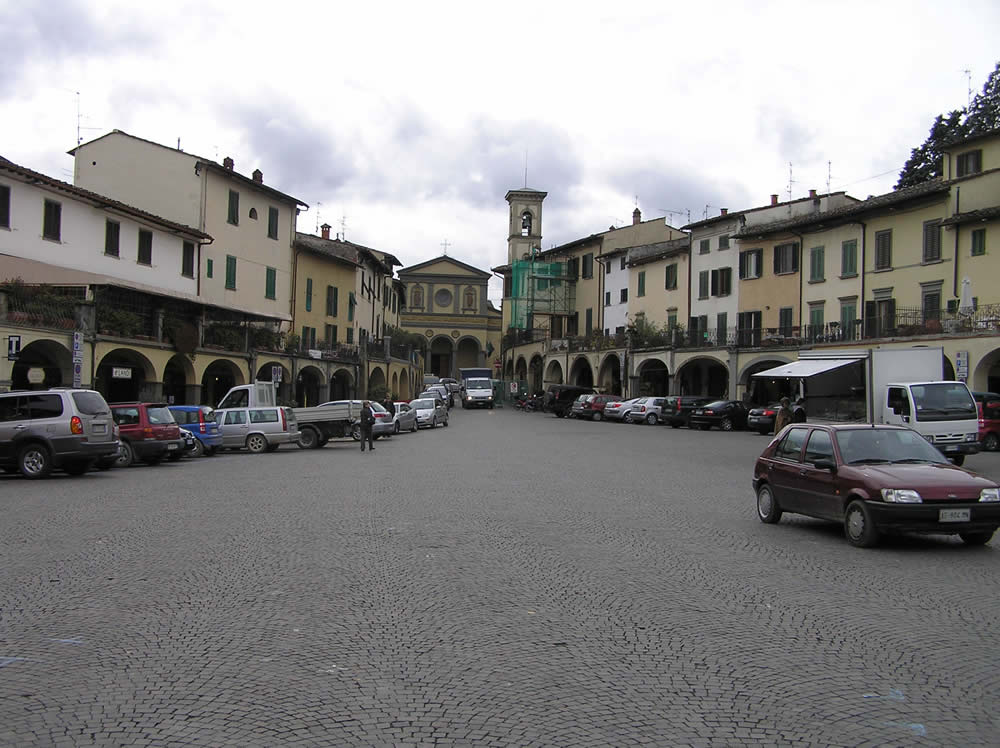Questo articolo è disponibile anche in:
![]() Français
Français ![]() Deutsch
Deutsch ![]() Español
Español ![]() Italiano
Italiano
Greve in Chianti is a beautiful town located in a flat area among the Chianti hills in the province of Florence, which is about 30 km away. Greve in Chianti was born on the edge of the important communication networks that headed the via Volterrana and the via Francigena.
Originally, in the 11th century, a small settlement was established on the hill of San Francesco, later the hill was the seat of an ancient hospital and then, from the end of the 15th century, of a small monastic settlement of the Franciscan Order. However, the village always remained a simple dependency of the castle of Montefioralle.
AN IMPORTANT MEDIEVAL MARKET
Since the Middle Ages the history of Greve has been linked to its main square which has always exercised the function of market. Thanks to its position which made it possible to easily reach Florence and the upper Arno valley, and to its intermediate position between Florence and Siena, Greve soon became the site of an important market, which took place in the current Piazza del Mercato, which was located in the center of a densely populated area, already rich in parishes and rural churches and scattered with castles and feudal villages, the most important of which was precisely Montefioralle.
The oldest part of the village gravitated around the convent of San Francesco and the market square, which soon became the main market place in the area, the square remaining substantially intact until the 19th century.
The square of the ancient market, today piazza Giovanni da Verrazzano, with its characteristic elongated triangle shape is mostly surrounded by arcades and in the center is the statue of Giovanni da Verrazzano, explorer and navigator from Greve, who on behalf of France explored and discovered many areas of the Atlantic coast of the United States and Canada, including New York Bay. One of the corners of the square is occupied by the parish church dedicated to the Holy Cross which was rebuilt in the neoclassical style in the 19th century.
Questo articolo è disponibile anche in:
![]() Français
Français ![]() Deutsch
Deutsch ![]() Español
Español ![]() Italiano
Italiano

